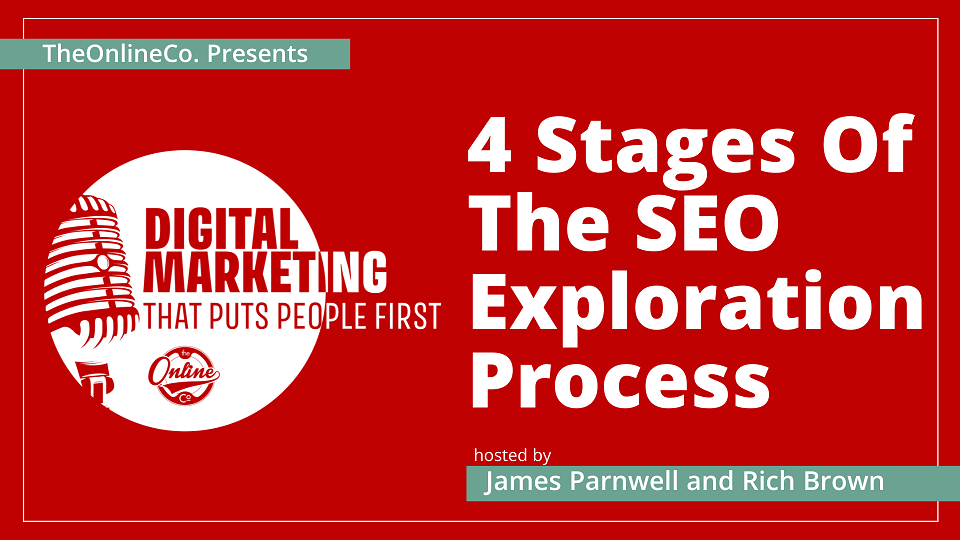Are you looking to implement an SEO for lawyers strategy but don’t know where to start? If you’re new to the world of digital marketing, it can be easy to get overwhelmed by the huge amount of advice out there. In this guide, we’ve distilled the bit wide world of SEO into some easily actionable, bite-size pieces that you can use to grow your law firm.
Contents
Chapter 1:
What is SEO?
The world of marketing is evolving rapidly – gone are the days where you can build a business via word of mouth and by paying for a few ads in the newspaper! These days, businesses are thriving by building up a strong online presence, building up a reputation and connecting with their audience on the web. They’re doing this through having stellar social media profiles, utilising their email database, and harnessing the true potential of SEO.
So, what is SEO anyway? You’ve probably heard a lot of people in the legal industry talking about it, and you may have even been told to use it on your site. Diving into the world of SEO for lawyers can be confusing, so let’s break it down.
Defining SEO for lawyers
SEO stands for Search Engine Optimisation.
This is the process of making your website really appealing to search engines such as Google, Yahoo and Bing, so that when people are looking for legal advice online, they find YOUR website.
Anyone can set up a website, but you need to put in a whole lot of work to make people find it. Even a stunning, well-designed website won’t reach people unless it’s optimised in the right way.

How a search engine sees your site
So, how do you know where to start? The first thing to understand is that search engines don’t see a website in the same way a human does. When we open up a webpage, we’re met with colours, images and text that give us information and make us feel a certain way about what we’re seeing.
A search engine, on the other hand, sees all this as a big page of code. This is what it reads to determine what your site is about, and therefore, where it should sit in the search results.
Want to see what your website looks like to a search engine?
- Open up your law firm’s website. If you don’t have one, you can open up a competitor’s site.
- Right click (or control+click on a Mac) somewhere on the page.
- Click “inspect”.
A panel will pop up that shows all the code that’s gone into building your website. Have a scroll through and see what’s there. There’s probably all the text that’s on your page, plus a lot of code that represents how a search engine sees the layout, colours and images on your site.
Because search engines see this page of code, it doesn’t know how pretty your site is – it only knows what’s in the code.
Understanding searcher intent
Google and other search engines are an AI, and they’re constantly trying to understand what we’re REALLY looking for when we type something into the search bar.
For example, if you type “lawyer” into the search bar, what comes up? Is it law firms in your area, or definitions, or both?
What about if you search “lawyer near me”? The search engine has probably used your location to find a list of lawyers in your area, or maybe given you some lists of “Top 10 lawyers in __”.
Next, search for a frequently asked question like “how do I find a good lawyer”. You’re probably presented with a list of blog articles that answer those questions.
When you do searches like these, the AI is trying to think as much like a human as possible.
Optimise for humans first, search engines second
When it comes to SEO, we believe it’s best to optimise for humans first, search engines second. You’ll probably come across all sorts of tips, tricks and hacks about how to get lots of website traffic fast, but as we’ve established, search engines are trying to become more and more human themselves. This means that if you try these tricks, you might get an initial boost, but the AI will catch up and you may even end up penalised for trying to cheat the system.
SEO is a marathon, not a sprint, so you shouldn’t expect amazing results straight away. If you take your time, however, and keep searcher intent and your audience front of mind, then you’re well on your way to growing a first-rate SEO for lawyers strategy.
Chapter 2:
How can SEO help my law firm?
Implementing the right SEO strategy for your website can work wonders for your law firm. It’s an ongoing process, so don’t expect outstanding results straight out of the gate. With patience, care and dedication, the hard work does pay off.
Here are some of the benefits of SEO for law firms:
- You’ll see an increase in traffic to your website.
- Your website will become more authoritative, meaning you’re more likely to get the top spots in search engine results.
- You’ll start bringing in more high-quality leads.
- More leads mean more income, meaning your business can grow.

Chapter 3:
Before you start your SEO strategy
Before you start developing and executing your SEO for law firms strategy, you want to make sure you have a really clear idea about what your business does, who your target audience is and where you fit into the market. Knowing your brand will make developing your SEO strategy much easier, as you’re more likely to target the right clients and bring in high-quality leads.
At TheOnlineCo., we offer a Digital Marketing Playbook service where our team of SEO, Social Media and Google Ads experts do all this work for you. Completing a Playbook gives you a really clear idea of where you fit in your industry, and which are the best tactics to use to actually get results.

Let’s deep dive into each of these areas and find out how you can use them to help your law firm get into the top spot in Google.
Come up with a client persona
When we’re in business, it’s really easy to want to capture as many clients as possible by making ourselves appealing to every possible client out there. However, as the old saying goes, “when you speak to everyone, you speak to no one”. It may feel counterintuitive, but the best way to bring in lots of amazing clients is by pretending you’re only speaking to one or two people.
This is what we call building a “client persona”. Building a client persona means coming up with a whole profile of the ideal customer you’d like to target. Start by writing down everything you know about this person – it could even be based on someone you know!
This initial brainstorm should cover off things such as their name, age, income, current life situation, pain points, hobbies, and goals. Even things that might not be directly relevant to how they relate to your business still help to build out a complete person that you can picture and speak to.
Let’s explore this with an example. Perhaps you’re a media law firm that represents big production companies that want to distribute their films. These companies are probably all very diverse and you’re probably in contact with everyone from their CEOs to their receptionists. Maybe you’ve worked with one particular client for a while that has always been loyal to you. Let’s pretend they’re a medium sized production company that makes travel documentaries.
The next step is to pick someone in the business that would be your main contact. Perhaps you’ve been working with this company for so long that you’ve developed a good relationship with the CEO, Susan.
Susan is your ideal client, and if you could fill your business with clients just like her, your law firm would be in its ideal position.
Your initial brainstorm of this client persona might look something like this:
- Name: Susan
- Age: 40s-50s
- Occupation: Documentary Producer / CEO
- Income: $120k+
- Family life: Married to her husband of 20 years Geoff, two teenage daughters, two dogs that are a big part of the family.
- Hobbies: Susan likes spending time in nature and is often found travelling to remote places in Australia to get to know the locals and the culture. She’s got a very active social life and loves spending time with her friends and family.
- Pain points: Susan’s started her documentary company 10 years ago and it grew quickly. She had a small amount of legal knowledge which got her by in the earlier days, but now she has big networks and streaming services wanting to license her content and she needs someone to handle the contracts and agreements.
Once you’ve got a well-rounded picture of your ideal client, you can even write a little story about who they are and how your business has helped them.
The most important takeaway from this is that everything you do when it comes to marketing your business – every blog post, the tone of your copy, the posts you share on social media – are all aimed at this ideal client.
Know your points of difference
If you’ve started a business, you’ve probably done it to fill a gap in the market. So, what does your law firm have that the others don’t? Write a list of the things that make your business unique, and make sure to keep them front of mind when developing your SEO for lawyers strategy.
Some examples of points of difference could be:
- Any awards you’ve won
- Flexible payment options
- Creating long-term partnerships with clients
- No-win no-fee policy
Know your voice and personality
Understanding your brand voice is much easier once you’ve done the initial work on your client persona. If you’re a team of fun, personable lawyers, there’s no point in filling your website with big chunks of content that are overly formal and hard to read. On the flip side, if your law firm represents serious matters, then you may want to write in a tone that’s highly professional and respectful.
Knowing your voice and personality will help you when it comes to writing SEO copy and connecting with the right people in your industry for networking opportunities.
Look at what your competitors are doing
It’s important to know where your firm sits in the landscape, both as a business and online. Perhaps your law firm has been around for decades, so is well-respected and well-known, but you’ve never had an online presence. Perhaps you’re a brand new firm that’s been opened by recent graduates. You may be a law firm that’s had a strong, ongoing SEO presence and just want to step it up.
It’s hard to know exactly where you’re at without looking at your competitors, so do a quick Google search to see who you’re competing against. Make a note of the things they’re doing that you like so that you can be inspired by them. It’s also worth noting what you don’t like so that you know what to avoid.
Chapter 4:
The 5 Areas of SEO for Lawyers
So, let’s take a deep dive into how to best utilise the SEO strategy for your law firm. At TheOnlineCo., we’ve whittled down the dynamic, complex world of SEO into 5 key areas.
They are:

Technical SEO

Content SEO

Local SEO

Backlinking

User Experience
Technical SEO for Lawyers
There is so much that happens ‘behind the scenes’ on a law website and several ‘technical’ factors that are important in determining how a site ranks for keywords in Google. Google prefers sites that run ‘cleanly’ and are optimised according to best practices.
What do we mean by a site that runs ‘cleanly’? In the simplest terms, it means a site that:
- Has well-written and organised code
- Has meta-data that is written properly, clearly and is easy to understand
- Has pages (and images) that load quickly
- Uses structured data throughout the site
- Has a well-organised URL structure.
It’s nearly impossible to completely separate one aspect of the various areas of SEO for lawyers from all the others – especially with Technical SEO. At some point you’ll find that many of the optimisations made across technical areas of a website cross-over to Content and User Experience.
Keyword Research
The first step is to run keyword research and create a comprehensive keyword ‘map’. This ‘keyword map’ is the cornerstone of all SEO work going forward. It’s important to discover which specific keywords / phrases people are using in search engines that are relevant to your business and worth targeting.
Once you have a list of these keywords you can identify which sets to use on specific pages and work to optimise your site assured you have chosen the right keywords.

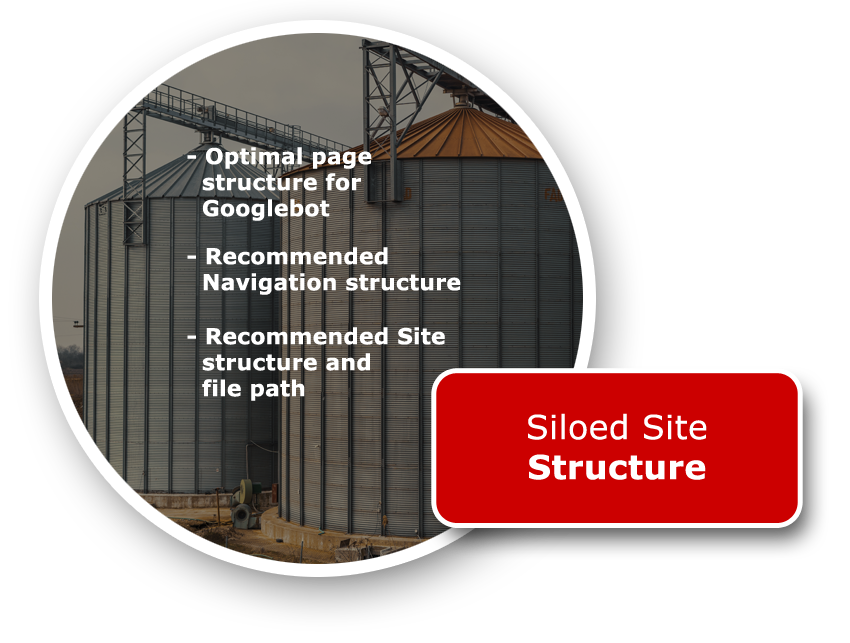
Optimised Site Structure for Lawyers
With the keyword map in hand, you can then determine which law areas to focus on when optimising your site for SEO. It’s always best to try and narrow down the law areas to 3 – 4 broad categories that correspond to keywords with value. For example, if you’re a family lawyer, you may choose to focus on Mediation, Divorce, Child Custody and Property Settlement – or whatever the main services of your business are!
Once you’ve narrowed down your law practice areas, you can explore using more keywords within that ‘silo’. The pages that sit at the top of these ‘silos’ for each of the areas of law your firm practices can be thought of as ‘Parent’ pages.
Any blog posts written that are relevant to a specific area of law should be assigned to the category that corresponds exactly to and sits directly under the ‘Parent’ page. Accomplishing this can be tricky and it’s important you create and follow a site structure plan before attempting to implement it. Once the plan has been created, you need to stick to it and make sure all new content is ‘siloed’ properly.
Meta Tags
Some of the most important aspects of SEO live ‘Behind the Scenes’ – the most important being meta titles and meta descriptions.
Meta Title
If you imagine that each page on your site is a self-contained book, the meta title is the title of that specific book. It is the text you see in the tab area of your browser when you are on a page:
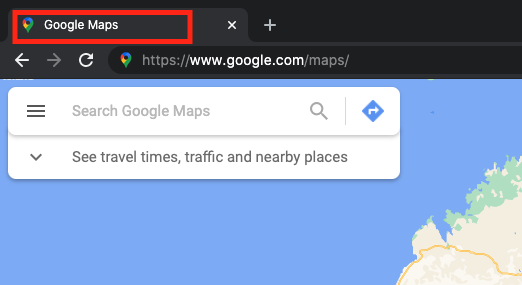
It is also the title you see in a Google Search result:
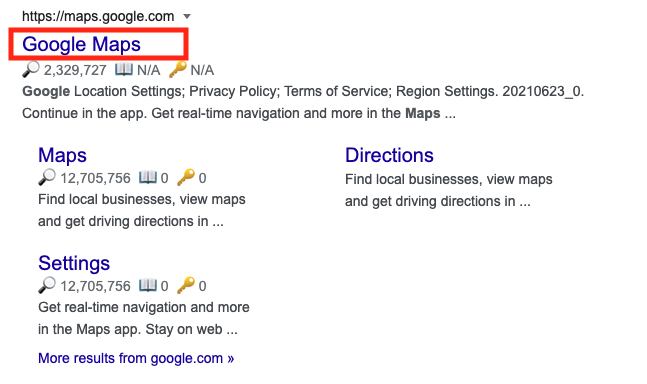
The meta title is the single most important factor in SEO, so it should be carefully considered when being created. It should be 60-65 characters in length and be written with the focus keyword at or near the beginning. It should also be written with the intent of the ‘searcher’ in mind and thought of as an ad. Write your title in a way that is rich with keywords but also enticing and inviting to the people who are searching.
Meta Description
The meta description is the 2nd most important factor for SEO. It is the short summary you see below the title in a Google search result (see above). It should be given the same amount and type of consideration when it is written. This is the ‘meat’ of your ad – make sure it repeats the focus keyword used in the title, but it should appear in a way that makes sense when read. This can be tricky and there is definitely an art in writing good meta titles and descriptions.
Your meta description should be no longer than 155 characters.
Images and Links / Accessibility
This is where the lines between Technical SEO and User Experience (UX) start to blur. Your site needs to be accessible to those with audio and / or visual impairments. To do so you need to add what are called ‘alt’ and ‘title’ tags to your images and ‘title’ tags to the links throughout your site.
For images, the ‘alt’ and ‘title’ tags should be a description of the image. These tags are used by screen readers to describe images on a page to those unable to see them clearly or at all. If you can find a way to work your focus keyword into these tags, all the better – it’s good SEO to tie the image to your content whenever possible and this is a good way to do that.
There are a couple of more things to consider when adding images to your site.
- Keep the image size as small as possible without losing quality. Never upload full-sized images directly from your phone or camera. Instead, use a free tool like Squoosh to resize and compress your image before uploading. Your largest images should only be 1920 pixels wide for ‘landscape’ images. ‘Portrait’ oriented images should be 1000 pixels tall max.
- Also, name your image file something containing keywords relevant to or containing your focus keyword. Stay away from spaces in your filename – use dashes ‘-‘ in place of spaces. Some examples:
- BAD: “dsc0001345.jpg” “family lawyers Sydney.jpg”
- GOOD: “family-layers-sydney.jpg”
For links, only the ‘title’ tag is necessary to be compatible with Google’s Accessibility requirements. Again, it should be descriptive of where the link will be taking the site visitor and can contain the focus keyword if relevant.
Page Load Speed
There are so many factors that go into ensuring the pages across your website load quickly, it’s not possible to go into all of it here. There is also a stack of tools that will scan your site and tell where the inefficiencies are.
The tools provided by Google are a great place to start and we highly recommend Google PageSpeed Insights to get a detailed overview of what the problems are and some suggestions on how to fix them.
Structured Data
Structured Data is an important tool for SEO in that, when used properly it can make the information on your site easier for search engines to understand. It also allows search engines to display different types of content on your site in more enhanced ways.
For example, an FAQ section on your website that uses structured data properly may be displayed in search results in a way that makes you stand out from others who may be competing with you for the same keywords. Rather than just the standard Google search result listing with a meta title and description, an FAQ page enhanced with structured data may appear at the top of the results with each question in your list displayed in a more interactive manner.
Structured Data is a VERY important aspect of local SEO. There are many options available to enhance a page attempting to capture ‘local’ SEO traffic.
For more info about structured data please see:
https://developers.google.com/search/docs/guides/intro-structured-data
https://schema.org/
https://yoast.com/what-is-structured-data/
Everything described above is just the tip of a very large iceberg. Technical SEO for lawyers is an ongoing process requiring a good amount of attention and care and there is certainly more to it. The info above will give you and your digital marketing team a strong path to get you started. If you find you are feeling overwhelmed or need guidance and help, don’t hesitate to reach out to the experienced SEO team at TheOnlineCo.
Content SEO for Lawyers
Web content needs to be relatable. You need to build trust with your audience, and there’s no better way to do this than by writing amazing website copy. When it comes to writing content as part of your SEO strategy, you need to find the balance between providing the right information and answering people’s questions without crossing into the realms of legal advice.
Ask yourself a few questions to get on the right track with writing legal content for the web:
- Who am I writing for? The answer to this question is – you’re writing for your audience, rather than your peers and colleagues. So, speak their language, rather than using lawyer-speak. Provide simple explanations when necessary and keep your sentences short.
- Should I write formally, or in a more relaxed tone? The answer here is another question – what is your brand? If your brand is very corporate and formal, continue this throughout your online copy. Alternatively, if your brand is more relatable and personalised, use a more relaxed voice. Don’t be afraid to use humour and personalise the content, as long as you keep your target audience in mind.
- How much of an explanation should I provide? It’s best to assume that your reader has a very low/no understanding of legal jargon, so ensure you provide simple explanations and point readers to further information, should they need more. It’s important that your online content is relatable, irrespective of your voice being formal or personal as this builds trust.
Understanding keyword distribution
If you’ve done your initial keyword research, you should have a nice range of keywords and keyphrases to target on your page. You want to make sure you’re only using one or two keywords per page, otherwise the search engine’s will have a hard time understanding what your page is actually about. Once you’ve settled on these, you’ll need to scatter them naturally throughout the content.
As a general rule, you’ll want to include the keyword:
- Once in the main heading (H1)
- Once in the SEO meta title
- Once in the SEO meta description
- In a few subheadings
- A few times evenly throughout the text
You also want to make the inclusion of these keywords read naturally, so that readers don’t view your content as spammy.
Say, for example, you’re writing copy for your homepage and you’ve chosen the keyword “criminal lawyer Sydney”.
An example of what NOT to do would be writing sentences such as:
“We are the best criminal lawyer Sydney, providing criminal lawyer advice to Sydney residents. Call us today for all your criminal lawyer Sydney needs.”
If you’re struggling to integrate your main keyphrase naturally every single time, you can also vary it up by including synonyms. For example, sometimes you might use the exact phrase “criminal lawyer Sydney”, while other times you could say “criminal law firm in Sydney” or “Sydney criminal lawyers”.
Make use of social proof
Another tip for content SEO for lawyers is to let others talk about how amazing your services are. This is where online reviews come in handy, as well as client testimonials.
Answering frequently asked questions
Make sure you’re answering any questions people are looking for answers for. By writing a list of Frequently Asked Questions, you’re starting off well. Try to integrate these answers into your website or social media copy as much as possible. Be sure to give readers what they need, to further build trust.
As always, be sure to include appropriate disclaimers whenever necessary. These can be posted at the base of a website page, or included in the ‘Read More’ section of a social media post.
Creating informative and engaging legal blogs
Creating blog posts is a great way to show search engines that your content is fresh and that your website is still active. Leaving even an excellent website dormant for too long sends the signal that you’re no longer around, so Google will start booting you from the top positions.
Blog posts are also an excellent way to get lots of organic SEO traffic. How? By providing detailed, comprehensive answers to the top questions people are searching for.
To do this, think about the most frequently asked questions people ask when they make enquiries with your law firm. Type these into Google and see what people are saying. If there are a lot of blog posts out there about the topic, then there’s probably a lot of people looking for answers to those questions! Now, click on the blog posts. How informative are they? Are they missing key points? Could you build a better article?
The next step is to invest some time in making a really good answer to these questions and trying to outrank the competitors.
Writing amazing blog articles is a huge topic that we could talk about for hours, but here are some key takeaways when writing informative and engaging legal blogs as part of your law firm SEO strategy.
- Write with your target audience in mind.
- Stick to clear, short sentences and avoid jargon.
- Avoid providing legal advice.
- Don’t write a sales pitch – searchers want quality, informative content.
- Try to answer the main question right at the top of the article and go into detail further down.
- Find ways to integrate keywords into the article.
- Include CTAs (calls to action) at appropriate points within the text.
- Search engines love lots of content, so try to aim for at least 1000 words per article. When in doubt, look at how long the top competitors’ articles are.
Writing SEO marketing copy for the web
Website content and social media marketing copy are two very different types of content, but website content can and should be repurposed regularly for your social media platforms.
Website content needs to clearly outline:
- your services
- costs involved
- processes
- any other information necessary for potential clients.
Each page should include a call to action at the end of the content, so potential clients know how to engage your services.
Social media is a great way to complement your SEO for lawyers strategy. Content may include a small piece of information in each post, pulled from your website. They need to be short and simple to read, with an engaging image or link to accompany. A short call to action can also be included on some posts but it’s best to keep these to 1 or 2 a week.
Keeping your site’s content fresh
In the same way that social media content must be regularly posted to keep the platform fresh and engaging, website copy must be regularly reviewed and updated. Not only is this important to ensure that correct information is featured on your site, but also to help increase SEO rankings. Inactive and outdated websites are heavily penalised, so making a habit of reviewing your content, as well as Meta titles and descriptions, is a great way to keep improving your site’s SEO rankings.
Local SEO for Lawyers
Local SEO is all about how you appear for searches within your local area. If someone was to search for your services within the suburb you are located in, or even the surrounding areas, it’s important to be seen. For example, if someone was to search for “Lawyers Sydney,” there are roughly 880 average monthly searches according to the Google Ads Keyword Forecasting tool. Ranking within the first page for that search term means that even if you are able to convert 1% of that 880, you’d be getting a good 8 leads per month. This can bring in a lot of business, especially if your law firm is just starting out. As you can see below, even the smaller areas around Blacktown, Northern Beaches, Sutherland and Penrith receive upwards of 70 average searches a month.
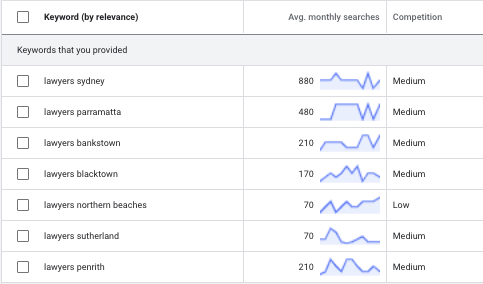
Local SEO allows you to be seen more and target specific areas. So, the real question is, how do I target my local area? There are many strategies you can do both online and offline to help reach those in your location. This includes:
- Google Business
- Local Pages
- Local Citations
- Sponsorship
- Events and markets
Google Business
Google Business is a great starting point for Law Firms to get started with their Local SEO. It is a free tool that enables law firms to create a profile of their business to be shown on local searches and maps. It contains useful information for potential customers including how to contact you, service details as well as reviews from other people that have used the service.
Your law firm can appear in 3 different places when people search:
- The Knowledge Panel: This is what appears on the right-hand side when you search for a service or a location. It can also appear when you search for a global brand or a celebrity with the details being populated from Wikipedia and other websites.
- The Local Pack: This is what appears after the paid ads or just below the top organic result when you search for a service. It lists 3-4 businesses who offer the same service within a local area, with contact details and reviews shown.
- In Google Maps: When you search for a service in Google Maps, businesses will show on the left-hand side, similar to the local pack.
Setting up your Google Business listing for your law firm is very easy! There are 2 ways to set up your Google Business listing, either by claiming ownership of an existing listing by searching for the business and finding it on the knowledge panel or by setting up a new location listing at https://business.google.com/.
You will have to verify the listing either by receiving a code in the mail or over the phone.
While not as popular, Bing also offers their own alternative to Google Business called “Bing Places.” This follows a similar format to Google Business whereby you can claim an existing listing or create a new listing. When you create a new listing, you will receive a verification pin in the mail.
How Can Google Business Help Me?
Google Business is a great way to be seen by people searching for lawyers or legal services in your area. It provides a quick and easy way for people to see when you are open, what you offer, where you are located and easily contact you.
Local Pages
For those lawyers who love to write content, local pages are a great way to reach potential customers in specific areas near your practice. The idea behind local pages is to create a landing page for potential customers where they can easily find out what you provide, where your closest office or location is and a place for them to contact you either by filling out a contact form or clicking on a clickable phone number or email address.
For example, if you’re a criminal lawyer in the heart of Melbourne, you could create a few pages targeting the term “Criminal Lawyer *Suburb*” in you’re surrounding area. Here are some examples of nearby locations and the search volume for each area.
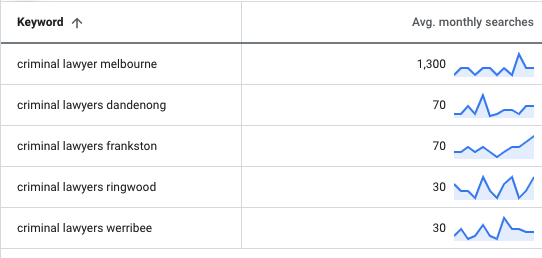
There are a couple of different methods to use to create these pages. You can either:
- Write new content for each individual local page
- Create one local page as a template and duplicate it as many times as you like, just changing the suburb to the new one each time.
However, it is important to note these SEO factors too as you write and optimise your content:
- Keyword Density – make sure that your keyword of choice is seen in your title, meta description, once in your introductory paragraph and a couple of times throughout your text
- Duplicate Content – while you may opt for the second option of creating a template and copying it to new pages, it is important to note that there may be issues with duplicate content across your local pages. This means that Google may see two very similar pages and only index one of them, thinking that it’s a copy of the other. To avoid this, ensure that you’re changing the text up enough to make it unique.
- Layouts – Create a user experience on the page that presents your content in a way that makes it easier for people to read, is interesting and engaging on your website.
By creating local pages that target each suburb, you have a greater chance of being seen by potential users, increasing your brand awareness. In combination with your optimised Google Business Listing, you will continue to build authority that your firm is the “go to” legal firm in your area.
Business Directories
While this can also be included in backlinking, having your law firm listed in business directories is a great SEO strategy for lawyers. There are many directories that you can put your law firm in that will help you be seen when people search. There are non-specific ones for all businesses such as:
Start with the free listings first as an easy way to get backlinks from higher quality sites before looking at the paid ones. There are also many business directories that are specific to law firms and lawyers that provide great backlinks including:
Once you have set up these listings, remember to continue to keep an eye on them and update them as your law firm changes. Like your Google Business listing, if you change your opening hours, telephone number, services you provide or location, it is important to make these updates across all listings. Consistency is key when it comes to business directories.
You can also keep an eye on what your competitors are doing. If you find that some of your competitors are dominating the rankings for the terms you want, there are a number of tools out there which can help you that are both free and paid including:
Just enter in your competitor’s website and check out their backlink profile for potential listings you can add to your law firm to. There may be directories out there that you didn’t know existed!
Markets and Events
While not strictly SEO, attending markets and sponsor events is a great way to boost your local presence. Relating more to a public relations strategy, setting up a stall at a market or fair, sponsoring a sports team or sponsoring local events are a great way to boost the exposure of your law firm offline in your local community. This means when people in your local area are looking for the services you provide, your law firm is already one that they recognise and will consider.
This SEO strategy has the ability to boost other marketing activities too. You can post on your website about your offline activities and update your Google Business listing with different events. You can also get good quality backlinks from the events or teams that you sponsor (but more on that later!). You can even post these details to your social media too, increasing the overall reach of your law firm.
Backlinking SEO for Lawyers
Backlinking is one of the most important (and hardest!) parts of SEO for lawyers. Developing and executing a good backlinking strategy takes time, planning, and a whole lot of patience.
First up, let’s actually answer the question:
What is backlinking?
Backlinking, put simply, is when another website places a link on their site that directs back to yours. This is an important part of SEO for lawyers, as it helps to build the authority of your website, eventually leading to more traffic and better rankings.
So, why do backlinks matter?
When another website links to yours, Google sees this as that site endorsing you. After all, why would a site link to you if they didn’t think you were valuable? What this means is that over time, if you can get more and more links from sites that have a lot of authority in Google’s eyes, Google will begin to see your site as also being trustworthy. It’s then more likely to give you the top spot in Google searches, helping you reach more customers and bring in high-quality leads.
Now, let’s dive into some of the best ways you can build a backlink strategy for your law firm.
Understanding white hat vs black hat SEO for lawyers
Something to flag early on is that not all backlinks are equal. A backlink from a high-authority site (eg a major news publication covering a major case you just won and linking to your site) is going to be much more valuable than a link from a less relevant, lower authority site (such as someone’s food blog).
When you’re developing your backlink strategy, you’ll want to make sure that the site you’re pursuing is high quality and relevant to the legal industry.
Unfortunately, there are a lot of dodgy backlinks available out there, and it’s easy to get caught out. Your law firm may have even been spammed with emails from marketing agencies offering to sell you a large quantity of backlinks for a small price. This may sound appealing, and it may even give you some great short-term results, but it’s almost guaranteed to let you down in the long-run.
Google wants backlinks to appear natural to stop people cheating their way to the top spot, and if it finds out you’ve been using dodgy tactics (which it will, eventually), then your site could be penalised and removed from the search results entirely.
Some black hat techniques to look out for and avoid include:
- Purchasing links
- Link farms
- PBNs (private blog networks)
Google has a whole guide on link schemes which outlines what to avoid and why.
Network in your industry
One of the best ways to build natural, high-authority links in the legal industry is by using natural networking strategies to create valuable connections that may turn into links down the track. This is a long process, and you can’t expect results immediately, but it certainly pays off.
Not only could this result in some great backlinks, but it also means you’re getting more involved in your industry and building potentially career-long relationships with other people in your space.
You can do this by connecting with people on LinkedIn, social media, and networking with people that run popular legal websites.
Use PR strategies
Like networking, using PR strategies is a great way to set up amazing long-term link opportunities, while also helping your law firm be seen as leaders in the industry.
Some PR tactics you can use to generate links include writing press releases about your law firm and submitting them to local newspapers and websites, or connecting with journalists about any high-profile cases you’re covering.
Competitor research
One of the easiest ways to find link prospects is by doing some competitor research to see who’s linking to their sites.
If you’re a big corporate law firm, you may know who your top competitors are already – they’re probably the biggest names in the legal industry that everyone knows. If you’re a bit more specialised, you can do a quick Google search to find out who your competitors are. For example, if you’re a Family Lawyer in Brisbane, do a for “family law Brisbane” – the firms that appear in the top spots are the ones you want to be looking at for inspiration.
Once you’ve got your top competitors, you’ll want to utilise an SEO tool such as ahrefs, Moz, Raven or SEM Rush to examine their backlink profiles. Some of these tools offer free trials, so you can give them a go before committing to paying. If you enter the web address of your competitors into these tools, they’ll give you a big list of all the places your competitor is getting backlinks. Spend some time working through this list, and if there’s any sites on there that you think could also link to you, get in touch!
Offer to write guest blogs
One of the opportunities that may come from networking and completing competitor research is guest blogging. Writing guest blogs used to be one of the most popular backlinking SEO strategies for lawyers. While it’s not as big as it used to be, it is still valuable, so long as you’re writing for websites that are authoritative and relevant to the legal industry.
To learn more about how to write the best guest blog, check out our article on the Ultimate Guide to Backlinking.
Set up university alumni profiles
Many universities will have alumni profiles on their websites that highlight notable graduates and what they’re doing today. Reach out to your university to see if this is something they offer.
Have link-worthy content
Having good SEO copy on your website is one of the best ways to generate links for your law firm organically. By following our guide above about writing SEO content for lawyers, you should be able to generate a good amount of well-researched, unique, optimised content. This content inevitably ends up becoming “link bait” for sites. If you’re saying something valuable, why shouldn’t people want to share it?
Search for unlinked mentions
Most law firms that have been around for a few years have probably been mentioned online without even knowing it. Maybe you worked on a case that got some press, or maybe you’ve been listed on a blog about the best lawyers in your area, but they haven’t linked to your website.
This is great low-hanging fruit, and it’s easy as anything to just flick them a quick email that politely asks for them to update this text to a link so that visitors can learn more about your law firm.
The easiest way to find unlinked mentions for your law firms by using a tool like ahrefs. You can also find mentions by typing the following into Google, replacing the text with the name of your law firm and your website.
“your law firm’s name” -site:yourlawfirm.com
This will bring up a list of everywhere your law firm has been mentioned on the web. You’ll then have to sort through them one by one to find the sites that haven’t provided links back to your site.
User Experience SEO for Lawyers
When approaching UX design for your law website you must keep the user in mind, considering how they would most easily navigate the site. If you were a potential client, what information would you want to be seeing when you first visit the website? Is it laid out in a clear and beautifully designed way? Users are looking for simple and eye-catching designs that show off your brand’s look and feel while giving them the key pieces of information they need.
Some simple ways to update the current look and feel of your website include:
- Updating and adding images
- Adding blocks of colour
- Breaking up and rearranging your content into 1-2 paragraph bites
- Adding in CTAs
- Including contact forms
- Adding social proof
- Making your content full width
Updating and Adding Images
Choosing the right images can make a huge difference to the look of your law website. It’s time to move away from the over-staged stock photos to more relaxed and casual images. Photographs are used to enhance the content, so you don’t have to use images that literally picture what you’re saying. For example, if you’re a family lawyer writing a piece about divorce, you don’t need images of couples filling out divorce papers to get the point across. Get creative with finding photographs that show off the emotion of the point you are trying to get across to your user.
If you have the budget, we highly recommend taking photographs of your business and employees at work, and any accompanying images. This will add a much more personal touch to your brand and allow users to see you are real people.
Try to diversify your images as well to reflect your clients. This means adding in a variety of race, age, gender, sexuality, and ability. Try to avoid having all your images as straight, white families as there is much more diversity in Australia. Think about who some of your clients are, and if they are being represented on your website.
Adding blocks of colour
To break up your legal content, think about adding in full blocks of colour when you have a small amount of text to display. This will keep your user more engaged with the changing content. Instead of having a bullet point list, think about adding these points to rectangles of colour in a 3-4 column width.
Including contact forms
Include multiple touch points for your user to contact you, whether this is with contact buttons or forms. This can be placed in the header or throughout your content.
Adding in CTAs
Just like the contact forms, you can add in buttons to link to internal or external content, such as highly relevant legal sources that add value to your content. Internal links should open up in the same tab, whereas external links should open in new tabs.
Adding Social Proof
Adding in testimonials or reviews from happy clients on your website will allow potential customers to hear from real people about what great work you do.
Breaking up and rearranging your content into 1-2 paragraph bites
Instead of having your content span the entire width of the page, try breaking it up by having images next to each section of 1-2 paragraphs of text. You should then alternate, having text to the left and image to the right for one section, then the next section having the image to the left and text to the right. Each second section can then be placed on a light coloured background that reflects the branding of your legal website, to further break up the text into bite sizes. You can certainly break this rule every now and again, especially if you have a small amount of text or a massive section that wouldn’t suit the layout.
Things to avoid
You should avoid having content full width across the screen. Break it up to ½ + ½ or 2/3 + 1/3. Try to have most of your content left aligned as this is what people are used to seeing. If it’s a small paragraph, a quote or a section you want to highlight, you can also have it aligned centre. Is highly recommended to not have any content right aligned, as this is less user friendly to read.
Chapter 5:
Bonus SEO tips for lawyers
Once you’ve built and implemented a robust SEO for lawyers strategy, there are a few other things you can consider to really make your campaign thrive.
Optimise for mobile
While you’re probably building your website and doing your SEO work on a computer, you shouldn’t neglect mobile users.
According to Perficient:
Globally, 68.1% of all website visits in 2020 came from mobile devices—an increase from 63.3% in 2019. Desktops drove 28.9% of visits, while 3.1% of visitors came from tablets.

For this reason, it’s essential to make sure your website is well-designed for mobile users. If it’s not, you could lose a huge section of potential audience members and valuable leads.
Consider supporting services
While SEO is very important in helping your law firm grow, you’ll have even more success if you harness all areas of digital marketing to create a comprehensive strategy. Using multiple strategies at once will help you grow your brand and reach audience members on different platforms.
Some of the other digital marketing services we recommend for lawyers are:
- Social media posting (Facebook, Instagram, Twitter, Linkedin, maybe even Pinterest).
- Social media PPC – pay per click – services (social media ads).
- Linkedin Sales Navigator
- Google Ads
- Graphic design services
- Photography
- Video
- Podcasting
Chapter 6:
How to choose an SEO agency for lawyers
So, you’re ready to take the plunge and get your SEO for lawyers strategy rolling. What next?
SEO can be a huge task, and it takes a lot of specialised knowledge to do it right. There are a few ways you can go about implementing your strategy, so lets’ go through the pros and cons of each.
You do it yourself
No one knows your business as well as you do. For that reason, you may decide to start integrating SEO as part of your workflow. The good part about this is that you’re completely in charge of the content you’re putting online and you can shape your brand however you want.
What people find after doing this for a while, however, is that the job gets bigger and bigger and takes up valuable time that you could be spending on other areas of your business. Unless SEO is your passion, it probably isn’t the thing you want to be focusing on. It also takes a lot of skills, expertise and training that will take a while to become familiar with, especially when your top competitors have seasoned experts running their websites.

You hire a specialist
Another option is to hire a digital marketing specialist and have them work in-house at your law firm. The good side of this is that they become a part of your business and will get to know it inside-out the longer they work with you. They’ll also be able to devote all their attention to your business and yours alone.
The downside is that if you’re doing a comprehensive digital marketing strategy, their time and resources may be limited if they’re trying to run your social media profiles, SEO, website, and additional marketing messaging. It can also work out to be the more expensive option, especially if you want someone with lots of experience to manage your campaign.
You work with an SEO agency
Working with an SEO agency is one of the most popular strategies, and for a good reason. Hiring an SEO agency is cost-effective, and you can be sure that you’re getting specialists who know exactly what they’re doing.
The downside of an SEO agency is that some aren’t transparent or send the work offshore. This puts your data at risk, and we’ve seen many websites fail in the hands of dodgy SEO agencies.
What we would recommend is to do your research and go with an agency that has your interest at heart and is completely transparent about everything they do. You need to be confident that your data is being kept confidential and that the work is being done to the highest standard.
You might be hesitant about working with an agency since they’re not directly a part of your business and will also be working on other clients. A good SEO agency will make you feel like they are one of your team. They should put in the hard yards to really understand your business and messaging and be easy to communicate with.
Why should your law firm partner with TheOnlineCo.?
At TheOnlineCo., our team are dedicated to getting to know your legal business and provide you with the best SEO for lawyers strategy out there. We have years of experience in the legal industry, meaning we understand exactly how to market law firms and help get you to the top of the search results and bring in high-quality, genuine leads.
With that in mind, here’s why we think you should partner with TheOnlineCo. Although, in the spirit of transparency… we may be biased!
Chapter 7:
SEO for Lawyers FAQs
There are potentially three types of SEO companies that you can hire for your law firm.
Off-shore SEO for lawyers Solutions
I’m sure you receive multiple emails per week offering you various SEO services for your law firm. We STRONGLY recommend not engaging with an off-shore SEO provider. They often have very cheap packages (sometimes less than $300 per month) and at best do very little or no work. At worst you are giving your website and internet real estate to an unknown person. We could tell you countless stories of people whose websites have been stolen from them and then had to pay a ransom to get it back, people whose websites have been used to create spam pages selling sunglasses, viagra, perfume and random products to support the SEO providers in their black hat SEO efforts.
Unfortunately, we have had to clean up many messes created by unscrupulous providers who have behaved in unethical ways. Most importantly, there was never any improvement in the ranking and traffic of the websites that were meant to be optimised.
Local SEO for lawyers Providers who operate offshore teams
What you may be unaware of is that most Australian SEO providers out-source their SEO work to overseas contractors. This enables them to pay a much lower rate to the people doing the work and sometimes pass cheaper packages ($300 – $700 per month) to you if your law firm hires them.
The business model they operate is to have a local Australian salesperson who promotes the SEO service to your law firm and then gets the offshore team to do the work. This model is fraught with problems. The quality of the work can be poor as the salesperson has a limited understanding of SEO (especially when it comes to Australian-specific law) and is trusting the offshore team to be doing the “right thing.” There can be issues with the timeliness of the services, with clients often having to wait overnight for an answer due to time zones. This becomes a distinct problem when an emergency such as a website going offline or e-commerce breaking. Unfortunately, there is limited accountability and within months the client realises that there have been no results and then moves onto a more professional service.
We believe it is very important that you know who is working on your website and where they are in the world. If you are looking for a budget SEO service for your law firm, please be aware of the risks involved and engage the agency with your eyes open to the potential problems.
The questions that you need to ask are…
- What is the 12-month strategy?
- What actual work is being done?
- What are the actual results?
If you don’t have transparency from your SEO for lawyers agency about these points you should look elsewhere.
Professional SEO Australian Providers
A professional SEO Agency will provide your law firm with a written 12 month plan outlining the strategies and actions taken to achieve increased traffic to your website. They will educate you on what work has been completed each month and how it fits into the overall plan. They will also give you transparency about the results of their work in terms of traffic, conversions and rankings of keywords.
A small website in a moderately competitive legal industry would expect to pay approximately $1,000 per month.
A medium sized website in a moderate to highly competitive legal industry would expect to pay approximately $2,000 per month
A large website in a moderate to highly competitive legal industry would expect to pay $3,000 per month or more depending on the size of the website, the scope of work being completed each month and the desire of the client to achieve results within shorter time frames.
The answer to this question depends on your legal niche, level of competition and how quickly you want to see results.
If you are a small business in an area saturated with other law firms, PPC services like Google Ads can give you results more quickly than SEO. In this case we would recommend pursuing both strategies at once. By running PPC ads while also getting your SEO in order will get your law firm in front of people and generate new leads more quickly. Results for SEO generally take 3-6 months before seeing significant results, but a lot can be done for these types of businesses to push you to the first page of organic results. We believe it’s a good idea to dominate as much of the first page for relevant / high value keywords by appearing at the top of the results with Google Ads, then showing up in the ‘Local Pack’ (the list of local businesses in a featured box) and then also showing up at or near the top of the organic search as well.
For large or small law firms that have a more National or Global presence with little competition, SEO is going to be a more effective strategy to make sure you dominate the top positions for the products and/or services you offer. PPC can be important for these businesses as well but may not be as crucial in generating leads quickly.
If you are a law firm with a National or Global reach in a highly competitive industry, PPC and SEO will be equally important. Much like the 1st example, PPC can quickly push you to the ‘top of the pack’ amongst your competition and increase your visibility. SEO is important to work on improving your ranking on that crucial first page. Studying the landing pages of the top 3 results can give you insights into what is missing on the relevant page on your website. This information is used to build a better page(s) than your competition.
Yes, anyone can do SEO. That said, there are a lot of technical aspects to SEO that aren’t easy to perform if you don’t understand things like HTML, CSS, PHP, Javascript, etc…
At TheOnlineCo., we’re constantly working to stay on top of the latest trends and changes in the SEO world. It’s something that requires constant attention to make sure you don’t fall behind and use outdated techniques or tools.
So again, yes anyone can do SEO, but it does require quite a lot of knowledge and skill to execute an effective SEO strategy for your law firm.
It’s important you have realistic expectations around SEO. It generally takes 3-6 months to see results from an SEO campaign.
We are often able to give our new SEO clients a good ‘SEO bump’ shortly after starting an SEO for lawyers strategy by addressing technical and site structure issues right away. By ‘cleaning up’ the code, technical issues and structure Google can often get a clearer picture of the business, services and products offered. This helps in the short term and we’ve seen noticeable increases in organic stats after running these optimisations.
On-page SEO is a set of efforts focused on improving the SEO on a specific page. It encompasses all SEO aspects of a page – the meta title and description, H1, H2s (headings), content, images, internal and external links, etc…
On-page SEO is the work that is done to optimise a page for a specific keyword / phrase.
TheOnlineCo. is a professional SEO provider with over 10 years of experience in delivering results for our legal clients. We have a 100% local team and provide complete transparency on what work is being done and how it will improve your SEO results. When we onboard a new legal client, we:
- complete a comprehensive keyword map in consultation with the business and their goals
- create an optimised-siloed site structure to enable Google to clearly crawl and index the site
- implement a 50+ point setup checklist in order to establish best practice benchmarks, tracking and monitoring
- build a 12-month rollout plan which itemises month by month what work will be done in order to provide full transparency on the services provided
- commence monthly work providing a data report as well as a video explaining the report
- meet with you quarterly in order to establish and review the next 3 months objectives.
If you feel this process would benefit your law firm, please feel free to get in touch.
Yes, we’ve done work for many law firms in Australia who specialise in many different areas of law. We work primarily with small to medium law firms in Australia who require an improvement in their visibility in the search engines.
There are a few different ways to let Google know your site exists. You can submit it directly here.
But the best way to get your site indexed on Google is to create a Search Console account then submit a sitemap.xml file. You can create a sitemap file manually but there are also options to create sitemaps automatically. Whether you create a manual sitemap file or automatic one depends on your site set up.
If your site is a static HTML based website, you’ll need to create a manual sitemap. The disadvantage here is around efficiency. Anytime you create a new page or delete old pages you will need to update the sitemap file and upload it to your website.
Automatic or dynamic sitemaps are updated automatically by the CMS.
Once you’ve submitted the sitemap to Google, it will send a bot to crawl the sitemap on occasion to check for updates.
You shouldn’t forget about or ignore Bing! Although Bing accounts for a very small percentage of all online searches, it’s still a good idea to have your site indexed there as well. The process is similar to the steps involved with Google Search Console.
Once you’ve submitted your sitemap to Google and Bing, don’t expect your site to skyrocket to the top of the Search Engine Results Pages* for your keywords*. There is a lot of work involved in making that happen – that’s where TheOnlineCo. Can help. We are trained SEO experts with a proven track record of helping businesses rank on Google for keywords relevant to their business.
Backlinks are incredibly important to any SEO plan and effort. There are many ways to go about getting high-quality backlinks for law firms and it is possibly the most difficult aspect of SEO.
Back in the early days (2000 – 2010), Google wasn’t as discerning about the quality and relevance of your backlink profile. This allowed people to build links back to their websites using all sorts of dodgy techniques labelled ‘Black Hat SEO’.
Over the years Google’s backlink policy has changed and is now much stricter. Unfortunately, there are still many SEO companies that use ‘Black Hat’ techniques to get you backlinks. A sign that this has happened to you is if your site gets a sudden / overnight and drastic increase in backlinks. This can have a positive effect in the short term, but is a red flag for Google and likely to trigger what is called a ‘manual review’ where your site is reviewed and penalised. Your site will lose its authority and you will see a steep drop in organic impressions and clicks.
It’s best to avoid any sort of backlink strategy that looks or feels the slightest bit dodgy. If someone has come to you promising they’ll get hundreds or thousands of backlinks in a month, walk away. They are most likely using ‘Black Hat’ backlink techniques and will put your site at risk of a manual review.
The best backlinks to get are from sites that have a lot of authority (already rank well on Google), but (MOST IMPORTANTLY) feature content that is relevant to your business and industry.
TheOnlineCo. doesn’t use ‘Black Hat’ techniques to get backlinks for our law firm clients. We have a slow, steady and effective workflow to get only high-quality links back to our client’s web sites.
Yes! Creating new content on a regular basis is one of the most important things you can do for good SEO for lawyers.
Google prefers sites that are ‘alive’ and produce new content often. That doesn’t mean you should create content for the sake of creating content. Don’t write junk! Take some time and research some keywords to see which subjects people are interested in and searching for. Decide on a keyword then look at your competition for that term and write a better article!
If you already have a ton of content / blog articles it’s a good idea to review that content and look for anything that is out of date and / or under-performing. Do some new research and update that article.
Long-Tail keywords are much more specific than what are called ‘Broad Match’ keywords.
A good example is to start with a ‘Broad Match’ keyword like ‘lawyer’.
‘lawyer’ is a very broad term and Google believes most people searching for ‘lawyer’ on Google are looking for a definition, not an actual law firm.
When you start to get more specific is where ‘long-tail’ keywords come in.
If I were to enter ‘family lawyer’, I’d get more specific results that returned listings for what Google considers to be the top family law firms in your area. Google uses your IP Address to determine your location and will deliver locally driven results based on that.
I would actually consider ‘family lawyer’ to still be a ‘broad match’ keyword.
Long-tail keywords are very specific, so something like ‘seo for family lawyers in sydney’ is a good example of a long-tail key phrase.
Long-tail keywords / phrases will have a lower search volume but shouldn’t be ignored. Even if a long-tail term only has 10 average monthly searches per month, if you can rank at the top of the Search Engine Results Pages for those long-tail terms you are more likely to get leads. And if you can provide content that closely matches that very specific set of search terms, people that find you are more likely to convert!
Drop us a line to see how we can help your business to implement the right digital marketing strategies.







